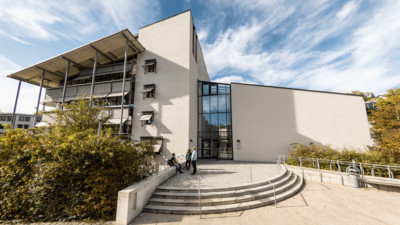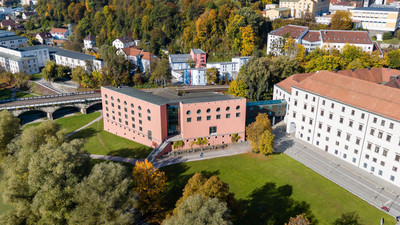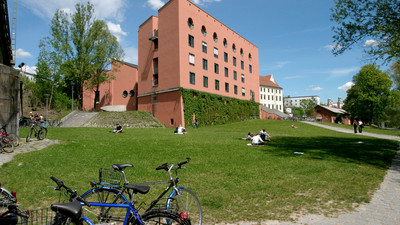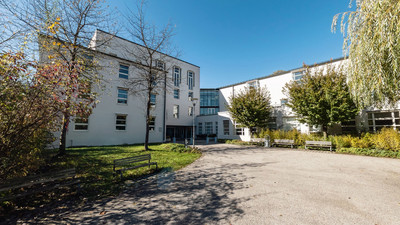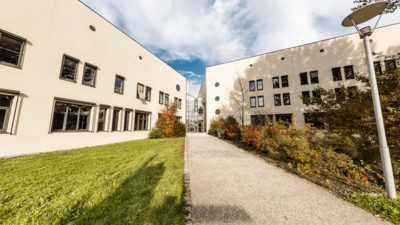Around 40 international students came together in Passau to discuss ethical approaches to cultures of remembrance. Central questions included: Is engaging with history a moral duty? What does the duty of anamnetic justice entail? How can we ensure justice for historical injustices in the present? And what role do digital technologies play in this process?
The Summer School was structured into three working groups led by Dr Lukas Nägeli (Future of Europe), Johanna Sinn (Sustainability), and Marie Hirsch (Digitalization), in which students explored these questions in depth and developed their own multimedia contributions.
The academic programme was accompanied by a series of specialist lectures offering insights into current research. Dr. Melanie Altanian (University of Freiburg) gave a talk titled “Historical or ongoing injustice? Remembering as resistance in cultures of denial and impunity,” in which she discussed remembrance as a form of resistance and illustrated how memory politics can become a tool of moral and political counteraction in cultures of silence.
Dr. Martin Hennig (University of Tübingen) addressed “Deadbots: Digital Afterlife and Collective Memory”, analysing the phenomenon of digital avatars of the deceased and their impact on processes of mourning, digital cultures of remembrance, and the ethical challenges of artificial immortality.
Prof. Dr. Sonja Pieck (Bates College, Maine) introduced the concept of Mnemonic Ecologies in her lecture “History, Memory and the Ethics of Conservation in Wounded Landscapes.” Using the example of the Green Belt, the former border strip between East and West Germany, she demonstrated how ecological restoration can also be understood as an ethical engagement with landscapes marked by violence.
A particularly powerful engagement with questions of historical responsibility, commemorative culture, and ethical remembrance practices was offered through the excursion to the Schloss Hartheim Memorial in Upper Austria.
PASSAE 2025 was organised by the Chair of Applied Ethics at the University of Passau, led by Prof. Dr Karoline Reinhardt, and was financially supported by the Passau International Centre for Advanced Interdisciplinary Studies (PICAIS) and the Gesellschaft für Analytische Philosophie (GAP).
Further information can be found on the PASSAE Summer School website.

